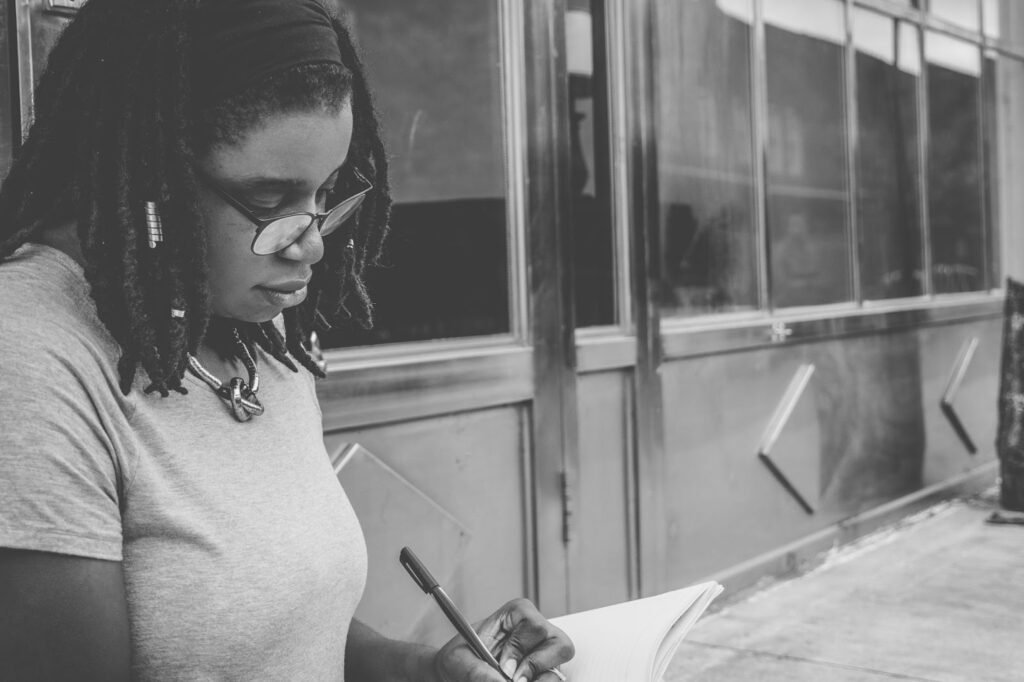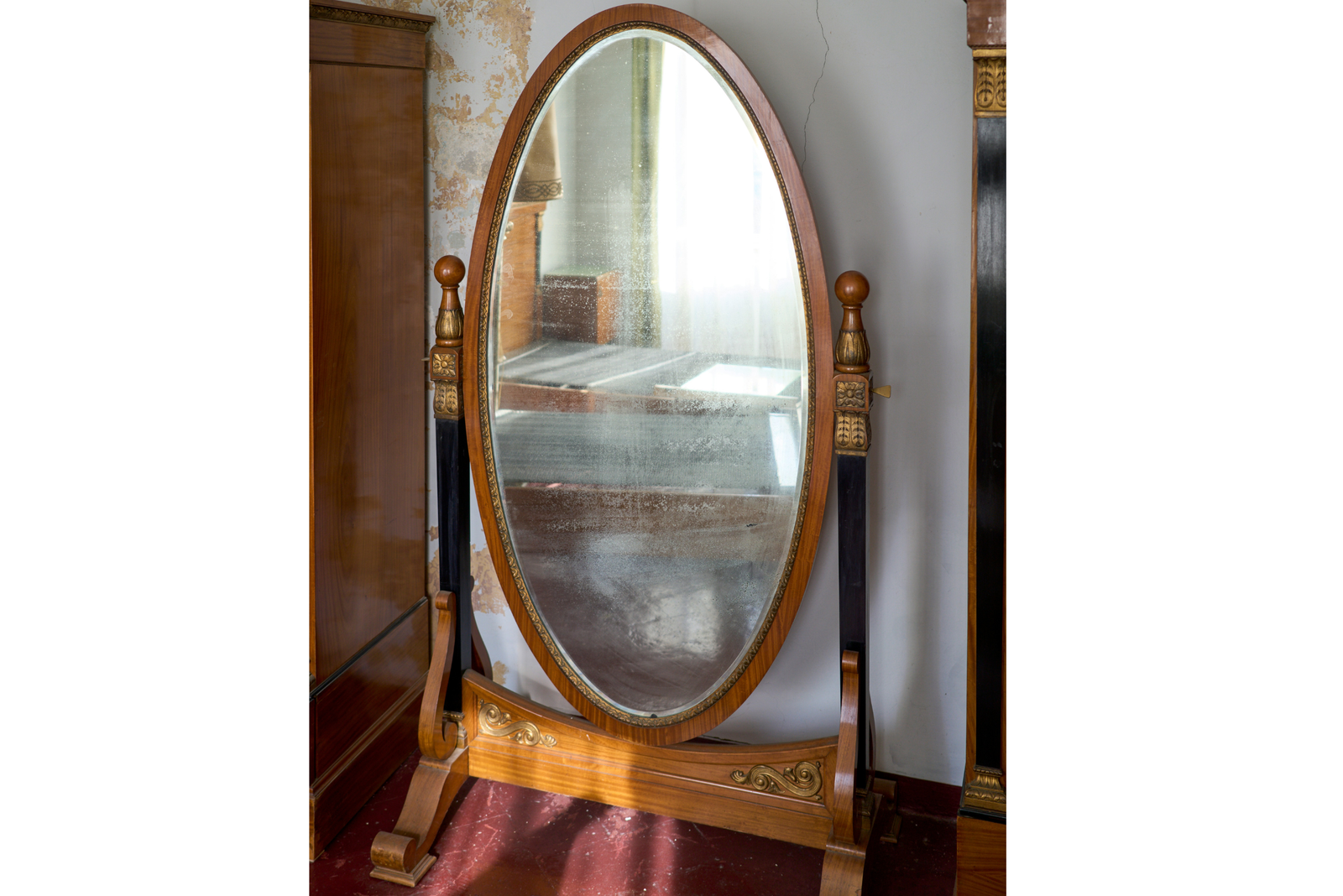- Country of Origin: Northern Ireland, United States of America
“…as a journalist, when I migrated, I started to face a lot of issues to find one opportunity. And I really wanted to tell these stories…I didn’t find places that wanted to publish [them],” Juliana da Penha admits.
An experienced immigrant, da Penha personally understands the challenges faced by migrant women. Native to Brazil, she has also lived in Portugal, Italy, and Cape Verde before settling in her current home in Scotland. But it was not just the challenges of migration that confronted her. The stories told by the press about migrants, especially women, were also alarming. As da Penha built a life away from her homeland, she began to realize the media did not always portray migrants in an accurate light, often describing them according to untrue stereotypes.
A seasoned migrant with a passion for storytelling
Having worked with an employability project for migrant women, da Penha witnessed firsthand the discrimination talented migrant women with much to offer experienced due to immigration policies and racism. She determined that if no one else would, she would tell their stories. Thus, an idea began forming, one that would blossom into Migrant Women Press, officially launching in 2020. A trained journalist, da Penha used her skills to create an online space for the stories of migrant women to be shared and centered.
Research has shown that the mainstream European media has frequently referenced migration as a “crisis,” framed migrants as either vulnerable or dangerous, rarely offered context for the circumstances of migration, and scarcely provided opportunities for migrants to speak for themselves. In the British media, journalists themselves play a pivotal role in framing public discussion on migration. To that end, Migrant Women Press serves as an influential force disrupting journalistic practices that perpetuate xenophobic, dehumanizing stereotypes.

Letting migrant women glow front and center
Unlike most other news outlets, Migrant Women Press and its content are led and created exclusively by migrant women. Da Penha explains, “…in the UK, for example, we have 94% of the journalism workforce made up of white people, and then we are bringing diverse voices.” In a field dominated by white majority influence, Migrant Women Press offers a fresh perspective to media discourse about migrants. “We are humanizing the discussions about migration. We are not just speaking about numbers, about crisis, we are speaking about people.”
Overall, more than 20 different countries are represented through the publication’s international contributors, fostering a connected global community.
Establishing a groundbreaking initiative like this, of course, comes with its challenges. For da Penha, the most difficult ones to overcome were the personal ones. “The barriers were internal barriers, mental barriers,” she reflects. Coping with insecurities regarding being out of the industry for many years and language competency was difficult. Rejecting this mindset and choosing to begin helped da Penha move forward with Migrant Women Press. “It doesn’t need to be perfect. It’s from my heart.”

Migrant Women Press is not a solitary effort. Da Penha works with a team of volunteer writers, editors, journalists, and media specialists from different backgrounds scattered across several countries. Together, they develop content and help shape the direction of Migrant Women Press, drawing on their diverse pool of knowledge and experience.
As a volunteer-led, independent media organization, no two days are alike. “Things change all the time, working with media,” da Penha reports. Despite the dynamic nature of working in the press, regular editorial meetings keep Migrant Women Press running as her team plans its next steps, week-to-week.
Moved by the migrant voices they amplify
For da Penha, the most rewarding part of doing this work is the migrant women she meets. She shares passionately about the experience of working with women, “doing amazing things, speaking with them, listening to their amazing projects, about their dreams, about their potentials, about how they wanted to contribute to making this work better.” Da Penha also emphasizes the importance of offering a space for the stories of migrant women to be told, so they are not lost.
Migrant Women Press has profoundly contributed to diversifying narratives about migrant women by empowering women affected by immigration and displacement to tell their stories, thus challenging stereotypes perpetuated by mainstream media. It has aided in introducing more perspectives to the public discourse. As da Penha notes, “I think it’s positive that we are not having one single side of the story.” She is currently a finalist for the Georgina Henry Women in Journalism Award.
Despite all that Migrant Women Press has accomplished, da Penha has no plans to slow down. Looking towards the future of Migrant Women Press, she hopes to do more investigative work to further influence media discussions around migration, help migrant women develop their media skills, and continue to bring diverse voices to the press. “This is our vision,” she shares.

Congratulations to Migrant Women Press for impactful narrative-changing work in media representation of migrant women. This project was honored by the DG Sentinel Brighter Tomorrow award on October 27, 2023 for its efforts in empowering migrant women by sharing their stories. On behalf of our Brighter Tomorrow team, thank you for taking the time to be interviewed.
If you are interested in submitting a piece to the DG Sentinel, please visit our submissions page here.
Yuvoice uplifts diverse voices around the world. We focus on perspectives of real people living through history and how Planet Earth looks through their eyes. We never necessarily endorse, promote, or agree with the pieces we publish. We want to showcase viewpoints of all types. Please check out our Statement of Global Progress for further information on our stance. And if you’ve enjoyed this piece, please drop a comment and support the author!






2 Comments
Daphne
I love the unusual term “experienced immigrant.” Uplifting to hear from Laura Rodríguez-Davis about how Brighter Tomorrow awardee, Migrant Women Press, is sharing the IRL experiences of founder Juliana da Penha and contributors around the world in this inspiring piece.
Pingback: